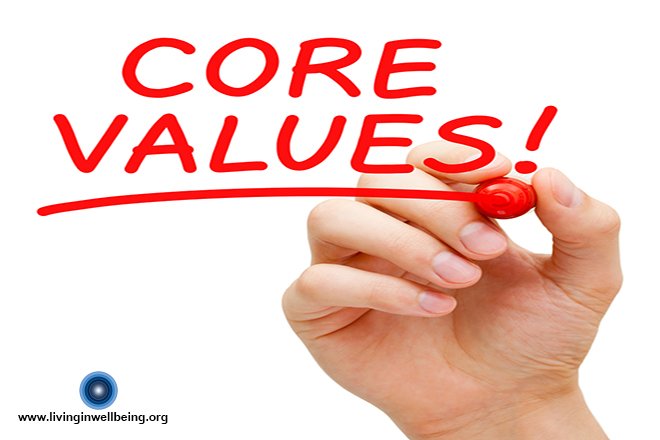
Let's move to the second ring. Core values define what is essential to the success of the organization. Let's be sure everyone understands what I mean. For example, if I say my house has a lot of "value,"Â I mean it's worth a lot of money. But that's not the same as a core value. If I say: "What I value is my family,"Â I am stating what is of utmost importance to me. That begins to capture the meaning of "core values." There are different systems of values orbiting around us.
First, we have our personal values. These are what we value most as an individual: survival, family, personal dignity, and freedom. Beyond these lie other personal work values. Some people value amassing a vast fortune. Others value public service. Some people value creativity, teamwork, or hard physical labor, while others may value intellectual activity. It's probably safe to assume that Donald Trump holds a different set of personal values than Ralph Nader.
Another layer of values are our community values. These are the things we consider important in our immediate communities. Some value development; some value green space; some value conservative politics; others value progressive politics.
Orbiting around our personal and community values are cultural values. Cultural values vary greatly. Freedom of individual expression is highly valued in the United States. People in Denmark value egalitarianism. Deference to authority is valued in Saudi Arabia. Close-knit families are highly valued in Mexico. Clearly, a culture's values permeate the people who live within it.
Finally, there are the organization's core values. When I talk about an organization's "core values," I'm referring to the things that are essential to its success, such as product reliability, customer satisfaction, financial success and ethical integrity. These are the values that the organization, if it could speak on its own behalf, would say are essential to its long-term success.












